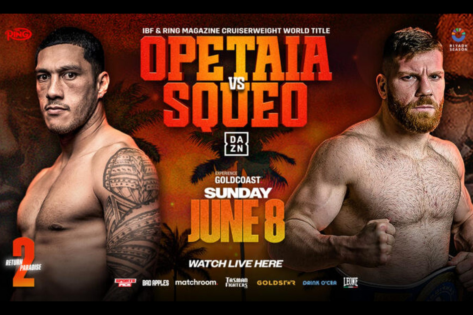“My grandparents, they wanted me to represent Mexico,” shares Wrestler Austin Gomez, a once NCAA powerhouse, having competed for Iowa State, Wisconsin, and Michigan, where he secured a second-place finish in the NCAA championships in 2003. Now, athletes competing for other countries have always been a hot topic. But now, someone prominent in the wrestling world has also jumped into the conversation, stirring the pot with his thoughts on American wrestlers donning the colors of other nations.
After all, this trend is gaining traction, with athletes who hold dual citizenship or have strong heritage ties increasingly choosing to compete for nations beyond the U.S. The voice adding to this debate is none other than Stevan Micic. Micic, a three-time Indiana state champion who also clinched a gold medal at the 2023 World Wrestling Championships for Serbia, offers a unique perspective on this transformative moment in wrestling.
“I think wrestling is a sport that’s… expanding, and I think it’s a really cool thing that people and wrestlers have that opportunity,” he shared, clearly excited about the sport’s global reach. However, his enthusiasm is balanced by a nuanced view on authenticity. He prefers it “when a wrestler actually represents a country of their heritage,” expressing concern about “people who are just trying to wrestle for another country and you’re really actually not from there.”
Stevan Micic on U.S. Wrestlers Competing for Different Countries pic.twitter.com/mMFIE72DGu
— WrestlersGrind (@_wrestlersgrind) May 21, 2025
This tension between personal ambition and cultural connection raises a pivotal question: Can wrestling’s expansion truly honor heritage without compromising competitive fairness? What does this all mean for the integrity of national teams? Micic hopes athletes stay true to their roots, just as he did with Serbia. He understands that some might be seeking the best competitive advantage, acknowledging, “yeah, it does look like, hey, I’m trying to… get the best opportunity for yourself, which is true.”
But for him, it’s about something deeper: “It’s cool that you can actually be closer to your roots and be closer to where you came from and your heritage. And I hope that’s the case because that was the case for mine being Serbian.”This duality in his stance ignites a broader debate within the wrestling community, questioning the balance between opportunity and genuine heritage.
The wrestling Community sees this sport differently
The question of American wrestlers competing for other countries has long been a hot-button issue, really dividing opinions in the wrestling world. We’re seeing it pop up everywhere, like at the Paris Olympics, where U.S.-born athletes were representing nations linked to their family roots, shaking up US traditional ideas of national identity. Take Austin Gomez, for example.
He wrestled for big-name colleges like Iowa State and Michigan, even snagging second at the NCAAs, but represented Mexico in Paris. “My grandparents, they wanted me to represent Mexico,” Gomez shared, adding, “They wanted me to be a proud Mexican.” But his choice hasn’t been easy. “You know, it’s just people talking bad about me saying that, you know, I’m no longer American,” Gomez admitted.
He’s taking it in stride, though, figuring it’s “a lot of people… hating on me because they want to be in my shoes.” This perfectly captures the big debate in the wrestling community: is it about seizing an opportunity, or staying true to your roots? Then there’s Myles Amine, another Michigan alum, who’s wrestling for San Marino, that tiny country tucked away in Italy.
He made history for them at the Tokyo Games, winning their first-ever Olympic medal (a wrestling bronze!) and even carrying their flag. “For people watching right now, the first thing they’re going to do is look up what is San Marino,” Amine joked, highlighting how unusual his representation is. These stories show the tug-of-war between personal choice and national pride, leading to a big question.
As wrestling goes global, can it celebrate heritage without making things unfair in competition? Indeed, some fans might not love seeing American athletes compete for other nations, but that seemingly is not happening. It’s a conversation that’s still unfolding, shaped by athletes like Gomez and Amine who are pushing the boundaries.
The post Wrestling Star Jumps Into Dual Representation Debate as American Stars Allowed to Compete for Rivals appeared first on EssentiallySports.



